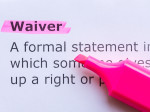Juice Jacking, Say What???
As with any cyber threat, prevention starts with awareness of the risk and, as a road warrior, I see people taking an unnecessary risk far too often. This one involves smart phones.
Here’s the problem. The cable you use to charge your phone is the same one you use to transfer or sync your data. This reality creates an attack vector that someone could take advantage of during the charging process. Read on.





























